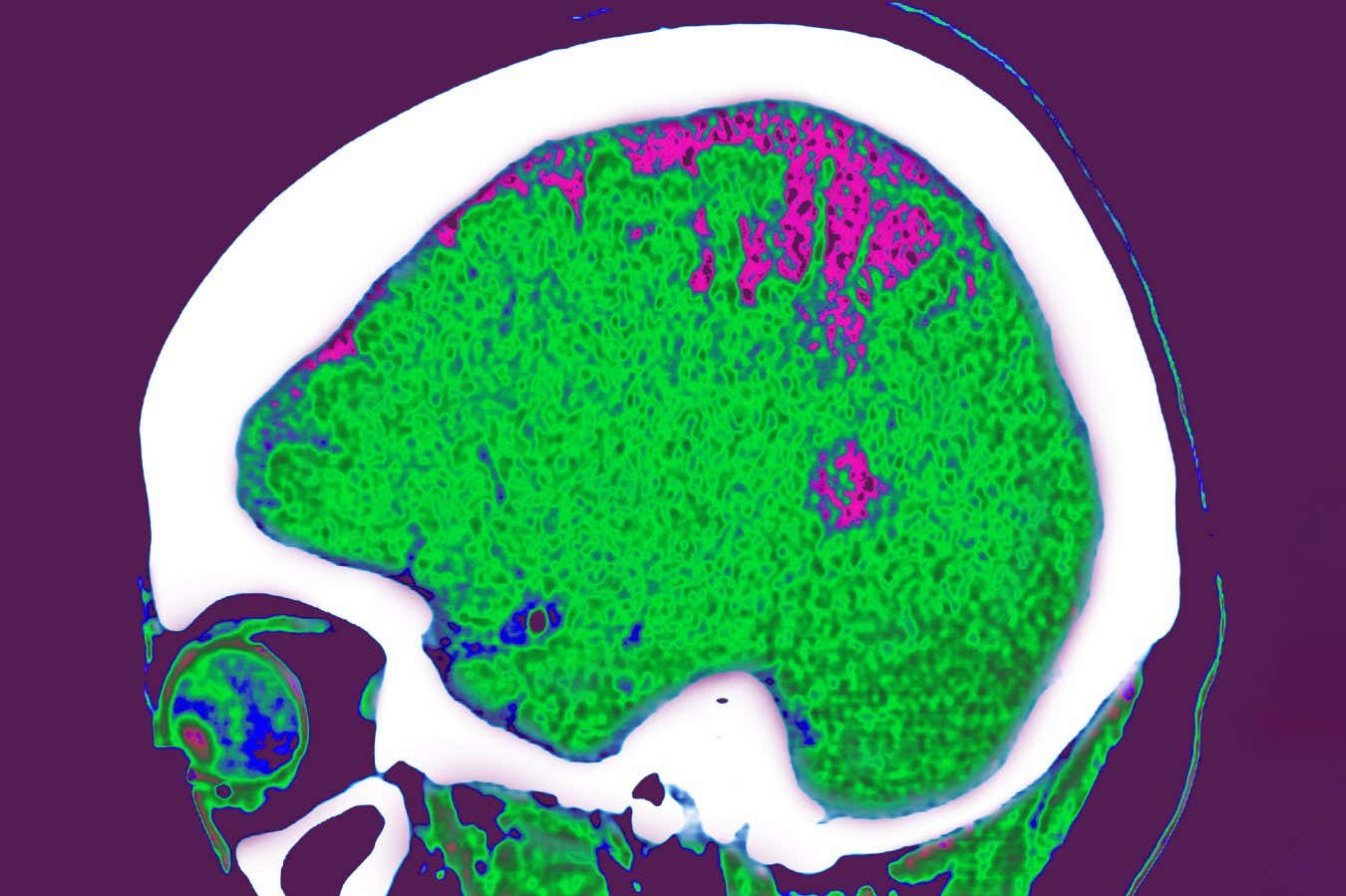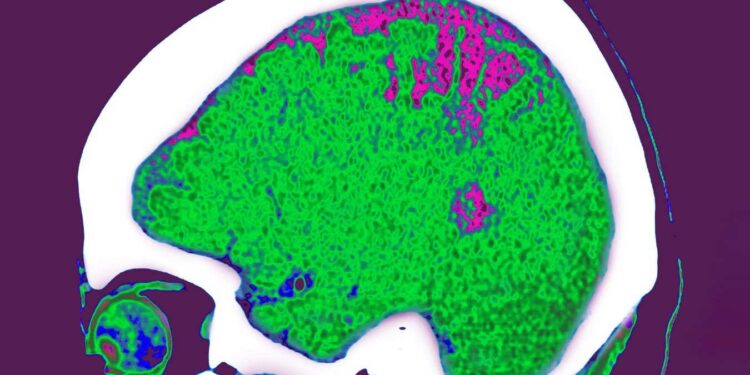
Our brain activity and health is affected by the goings-on elsewhere in our body
CAVALLINI JAMES/BSIP/Getty Images
The effects that our fat has on our movement, emotions and even our risk of Alzheimer’s disease may differ depending on where in our body it is located.
When it comes to studying the health consequences of excess fat, a lot of the research has focused on the abdomen, where too much is associated with worse cognition and heart disease. The few studies that have looked at fat in other areas mainly included a small number of participants.
To expand this knowledge, Anqi Qiu at The Hong Kong Polytechnic University and her colleagues have analysed how fat in four parts of the body – arms, legs, torso and around internal organs – may affect the brain.
The team collected body composition scans and brain-imaging results from more than 18,000 adults, with an average age of 62, who participated in the UK Biobank project. After accounting for factors such as age, the researchers linked excess fat in each of these regions to distinct brain changes.
For instance, above-average amounts of arm and torso fat were associated with thinning in the sensorimotor cortex, an area involved in movement. Arm fat was also linked with decreased volume in the hippocampus. Crucial for memory, this is one of the first regions affected by Alzheimer’s disease, which may explain why other studies have linked fat storage in the arms with a higher risk of neurodegenerative conditions.
The researchers also found that above-average leg fat was linked to decreased connectivity in the brain’s limbic network, which regulates emotions and reward processing. They think this might be because lower body fat secretes leptin, a hormone that regulates hunger, with higher levels of leptin being associated with reduced limbic connectivity.
But it was having more fat around the internal organs, known as visceral fat, that had the strongest association with altered brain function. This was the only type of fat the team analysed that wasn’t linked with the preservation of white matter, tissue that transmits signals between different brain regions. Instead, it was associated with its deterioration, another hallmark of Alzheimer’s disease.
This may be because visceral fat produces more inflammatory molecules than fat in other areas, says Sonia Anand at McMaster University in Canada, which could spur damaging inflammation in the brain.
It is unclear why arm fat was linked with both protective and harmful brain changes. “It was surprising that it goes in two different ways,” says Michal Schnaider Beeri at Rutgers University in New Jersey. But it also shows how complex the relationship between body fat and brain health is, she adds.
The study looked only at associations between body fat and brain function, so “you cannot conclude causality of any kind”, says Beeri. It could be that some brain changes actually affect fat distribution, she says. The findings are also limited by the fact that most of the participants were white, so they may not be applicable to broader populations, says Anand.
Still, the results underscore the idea that different types and locations of fat have different effects, says Anand. This could mean that developing treatments that target visceral fat has a greater impact on brain health than indiscriminate weight-loss interventions, she says.
Topics:
Source link : https://www.newscientist.com/article/2496947-where-you-store-fat-may-influence-the-effect-it-has-on-your-brain/?utm_campaign=RSS%7CNSNS&utm_source=NSNS&utm_medium=RSS&utm_content=home
Author :
Publish date : 2025-09-19 13:55:00
Copyright for syndicated content belongs to the linked Source.











